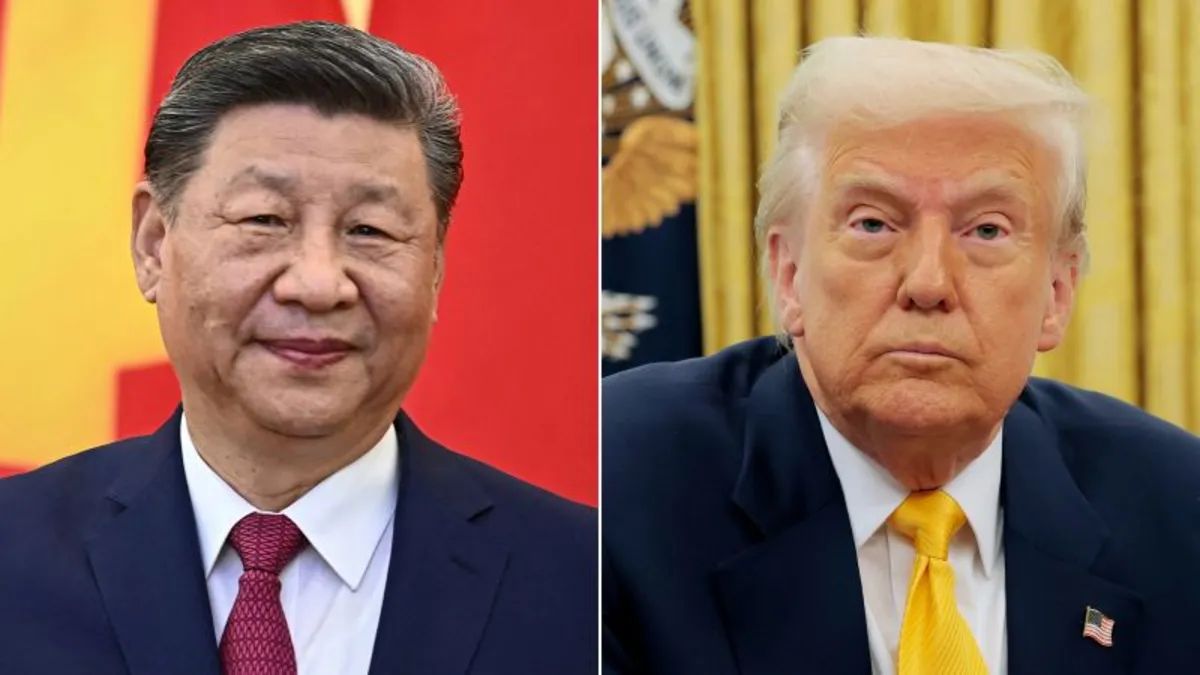
In a significant move, President Donald Trump and China’s leader Xi Jinping participated in a crucial call on Friday morning to finalize a deal that would transfer the majority of TikTok’s US assets to American investors. This deal, if successfully concluded, would mark the end of a lengthy negotiation process that began during Trump’s first term and has become increasingly pivotal in the broader context of US-China relations in recent months.
On Monday, US Treasury Secretary Scott Bessent and Li Chenggang, China’s vice minister of commerce, announced that a framework agreement for the sale of TikTok had been achieved. This agreement was the result of discussions held in Madrid between diplomats from both nations. Under the proposed terms, TikTok would remain operational in the United States, alleviating concerns over its potential ban.
In January, former President Joe Biden signed a bipartisan bill that took effect on January 19, prohibiting TikTok from operating in the US unless it transferred at least 80% control of its assets to American operators. However, during his administration, Trump paused the ban multiple times while pursuing a sale of TikTok's assets with China.
While specific terms of the agreement have not been disclosed, sources familiar with the negotiations indicate that the deal will involve investments from several US-based venture capital firms, private equity funds, and technology companies. Notable investors expected to hold a majority stake in TikTok include Oracle, Andreessen Horowitz, and Silver Lake. Chinese investors would retain a 20% stake, with the new consortium being managed by a predominantly US-based board, which will include a member appointed by the Trump administration.
The Wall Street Journal was the first to report on the details of this proposed framework. A senior White House official commented to CNN, stating, “Any details of the TikTok framework are pure speculation unless they are announced by this administration.”
The current discussions surrounding the TikTok agreement are seen as a precursor to a long-anticipated meeting between Trump and Xi. US officials noted that without a finalized deal regarding TikTok, a meeting between the two leaders would not be feasible. The likelihood of their meeting increases as Trump plans his visit to Asia at the end of October.
China has previously been reluctant to allow ByteDance, TikTok's parent company, to divest its US stake. However, as trade tensions escalated, evidenced by China's recent claims against Nvidia for antitrust violations, Chinese authorities have seemingly softened their stance.
By April, the main components of the deal had been organized, but discussions stalled when Trump’s “Liberation Day” tariffs were implemented, effectively blocking Chinese goods. As tariffs were reduced and negotiations resumed, Bessent indicated that both Trump and Xi expressed renewed interest in advancing TikTok discussions. Key issues, including US national security concerns and China's approval of the deal, remain to be addressed.
On January 18, TikTok briefly went dark in the US as the Foreign Adversary Controlled Applications Act was enacted. However, the day before the law's implementation, Trump announced he would sign an executive action to protect US companies from penalties for hosting TikTok. The law grants the president considerable discretion in enforcement, and Trump has delayed the enforcement date several times, with the latest extension set for mid-December.
Critics argue that Trump's extensions undermine the will of Congress. Although Trump had initially supported a ban on TikTok, his perspective has shifted, especially viewing the platform as a potential asset for his 2024 election campaign. TikTok has around 170 million users in the US, a demographic that significantly supported Trump, particularly among younger voters.
As the situation continues to evolve, Trump has consistently stated that a deal is close, but tangible results have only recently begun to surface. This situation is still developing, with further updates expected as negotiations progress.
Contributions to this report were made by CNN’s Betsy Klein, Alayna Treene, and Kevin Liptak.